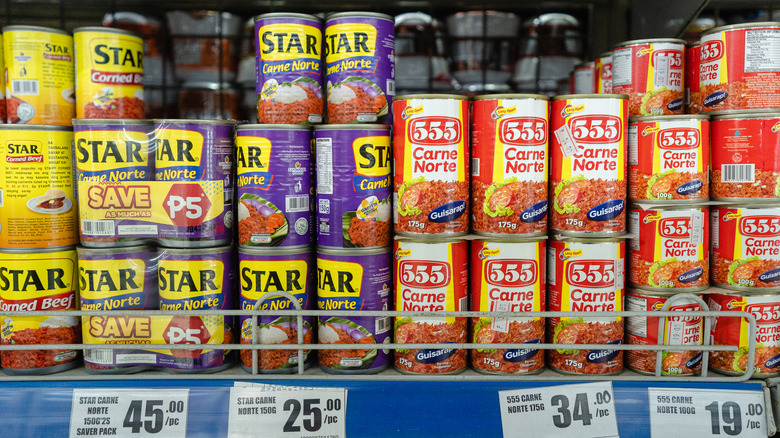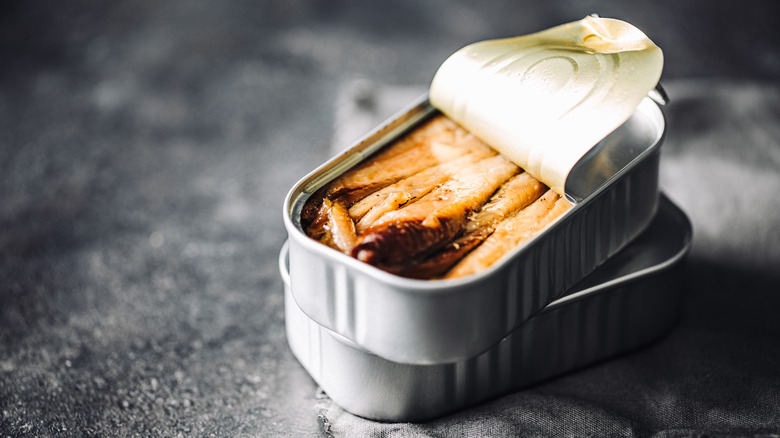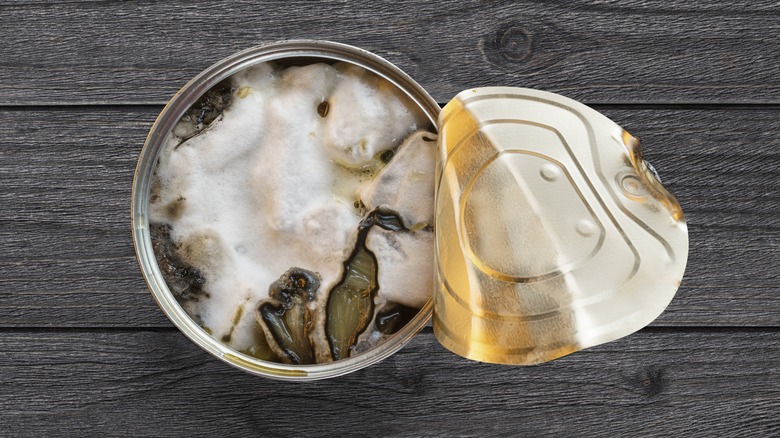Why You Should Never Eat Canned Food That Was Accidentally Frozen
If the apocalypse eventually occurs, and we find ourselves struggling to survive in a zombie-infested world, canned goods are going to be our immediate savior when it comes to food. Why is that? Well, almost everyone is aware that canned food lasts long after its "use by date" as long as the can isn't showing signs of rust, swelling, or decay. But did you know eating from cans that have been frozen can cause all kinds of health issues?
If you live in an area where the temperature regularly drops below zero, and you have canned soup stashed in the basement or have accidentally left your canned tomatoes outside your tent when camping, there is a chance they may partially freeze due to the low temperatures. If this is the case, and the seal is broken or the can shows signs of rust, dispose of it immediately.
Even if it looks okay when opened, do not try tasting the food, especially if it smells strange. Empty the contents into a plastic bag, tie the bag so no animals can get at the contents, and throw it in the closest trash can. Unfortunately, because things with water expand when frozen, the can may have been damaged, and its seal broken.
What happens to canned food when it freezes
The issue with frozen canned food isn't the low temperature, but rather the thawing process is where problems may arise. You can still eat frozen canned goods even if they show signs of swelling. This isn't due to that common deadly reason behind cans swelling (botulism), but because the water in your canned food expanded when frozen.The best method is to defrost the cans in the fridge, but you have to make sure the seal hasn't been broken or that the thawing process hasn't already started.
As the U.S. Department of Agriculture (USDA) states, cans that "have thawed at 40 [Fahrenheit] or higher" are unsafe to consume and need to be tossed. This is because temperatures at this level are a breeding ground for dangerous bacteria known as Clostridium botulinum. This nasty chap thrives in areas without oxygen (such as an enclosed can) and produces a toxin that can cause deadly food poisoning. Although rare, botulinum bacteria can cause "difficulty breathing, muscle paralysis, and even death," according to the Centers for Disease Control and Prevention.
The risks of a broken seal on canned food
It's not just frozen canned food you need to be careful with. If there are any signs of damage to the top of the can or the seal is broken, no matter whether it has been frozen or not, then you have a problem. While small dents in the can are fine and won't impact the quality of its contents, a damaged seal is bad news. If you notice the seal is broken, bulging, or leaking, then there's a good chance the can is spoiled and should not be eaten. There is a possibility it has been contaminated by botulinum bacteria, and that's not something you want to deal with. Low-acid foods, like corn, beets, and beans, are at a higher risk than more acidic counterparts, like tomatoes, so be extra vigilant.
Rust around a damaged seal is also a sign the food inside is not edible, as rust can cause small holes in the can that let other dangerous bacteria form. Never take risks with canned goods. If you have any doubt, throw it out.



